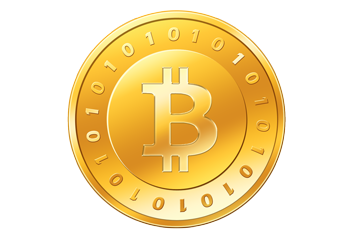

Four former customers have sued the virtual currency exchange Bitcoinica, claiming that it owes them $460,457 (£293,080) in funds they previously deposited.
Bitcoinica was hacked twice in 2012, with attackers stealing over $177,000 worth of BitCoins. The website ceased operation in May, but continues to accept claims for repayments.
BitCoins are an unregulated, untaxed and untraceable Internet currency that allows direct peer to peer transactions. Sites exchanging bitcoins have proved vulnerable, prompting a fall in value for the currency.
BitCoins are a decentralised virtual currency commonly used online among people interested in keeping their transactions secret. It is not tied to any real money, but traded on an electronic exchange to establish its value. BitCoins have generally hovered at a price of around $14 to $17 (£9 to £11) per unit.
Instead of paying up, the owners sold Bitcoinica to UK-based exchange Intersango. Ten days later, the service was hacked again — this time, hackers made off with 18,547 BitCoins, which were worth about $90,000 at the time.
Shortly after the attack, Intersango closed the platform to “improve security”. The customers were once again assured that most of their money was safe, and that hackers stole from Bitcoinica, and not its users. In case of withdrawals, a note on the website promised a 50 percent refund first, and the remainder later.
However, four Bitcoinica users weren’t satisfied with getting just half of their money back, and turned to the Superior Court of California in San Francisco. They have filed a lawsuit which accuses Bitcoinica and Intersango of breach of contract, negligence, and conspiracy to “hinder, delay and deprive Plaintiffs of their rights in respect to the monies at issue”.
However, as mentioned in the court summons, the victims don’t even know if the names of Bitconica staff are real or just aliases, so this case might forever serve an example of how people shouldn’t hand their money over to anonymous operators.
Last year saw another BitCoin exchange hack, the victim being Japanese Mt.Gox website. While only about $1,000 worth of BitCoins were stolen, the irregular trading that resulted from the incident caused the value of the virtual currency to plunge.
And in July 2011, researchers had identified the first strain of malware designed specifically to steal BitCoins.
How well do you know Anonymous? Take our quiz!
Apple reportedly working on lighter, cheaper Vision Pro, another model that links directly to Mac…
OpenAI says GPT-4.1 model family can understand prompts with up to 1 million tokens, features…
Blue Origin jaunt sends Jeff Bezos fiancée Lauren Sanchez into space along with Katy Perry…
Meta to use public posts from EU users on Facebook, Instagram to train AI models…
Apple tops smartphone sales worldwide in first quarter after iPhone 16e launch, in spite of…
Intel sells 51 percent of programmable chip unit Altera to Silver Lake Partners in deal…
View Comments
Unfortunately, the original Verge article contains some significant inaccuracies which have been republished by other media who've picked up the story.
Zhou sold Bitcoinica in late 2011 and continued to operate it for the new owners and retain the profits until January 2012.
Bitcoinica suffered substantial losses in February during the Linode intrusion which also targeted other Bitcoin entities.
In late April, "the Intersango guys" took over the operation of Bitcoinica as general partners of Bitcoinica LP. A couple of weeks later, the Bitcoinica server - hosted on Rackspace - was hacked and in addition to the theft of ~18,000 BTC, the database was deleted by the hacker. At that point, Bitcoinica was taken off line and a process put in place to refund users. The absence of back ups for the database complicated this process.
In mid-July, the Bitcoinica MtGox account was breached and USD 40,000 plus 40,000 BTC were transferred out of the account by the intruder. This left Bitcoinica with insufficient funds to continue the refund process, which then stalled.
Since that time, AurumXchange and MtGox have revealed that some of the stolen funds were passed through AurumXchange before AurumXchange was informed of the theft. As a result of information made public by AurumXchange, Zhou claims that he has established the identity of the MtGox thief and that he is able to recover the majority of the stolen funds from that person so that the refund process can continue.
As you can imagine, a great deal of suspicion remains in the Bitcoin community regarding Bitcoinica suffering three major security breaches in such a small amount of time - suspicion which is not diminished by the fact that these intrusions and thefts have apparently never been reported to law enforcement for criminal investigation.
Great spin there. Bitcoin is not untracable and is used for many types of transactions, "commonly used online among people interested in keeping their transactions secret" is a biased opinion.
And who has the motive and the technical skills to do this to BitCoin? Looks like another NSA false flag to me.